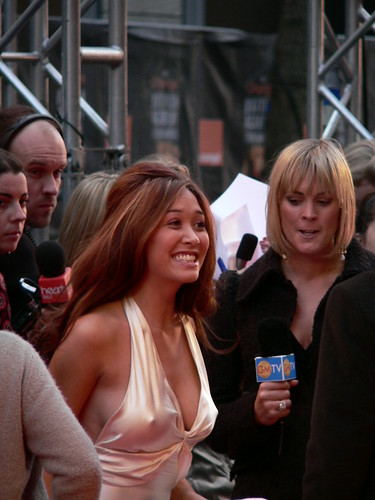BAFTA Awards Nominations: Film Committee Chair on “Social Dominance Bias” and Diversity Progress
BAFTA #BAFTA

The 2024 BAFTA film awards nominations were unveiled on Thursday, with Christopher Nolan’s biographical epic Oppenheimer emerging as the leader of the movie pack with 13 nominations, followed closely by Yorgos Lanthimos’ black-comedy science fantasy Poor Things with 11.
After receiving, just like Oppenheimer, 15 mentions on the BAFTA longlists released earlier in the month, Martin Scorsese’s Western crime drama Killers of the Flower Moon ended up with nine BAFTA nods, while Greta Gerwig’s Barbie received five. While Barbie stars Margot Robbie and Ryan Gosling ended up in the BAFTA running in acting categories, Flower Moon earned Robert De Niro a nod, but not Leonardo DiCaprio. And neither Scorsese nor Gerwig are competing for the directing BAFTA.
More from The Hollywood Reporter
What do all the nominations mean, including for BAFTA’s focus on ensuring diversity?
THR talked to Anna Higgs, the chair of BAFTA’s Film Committee, about the contenders and how they emerged from a bigger number of submissions.
***
What are your big takeaways from the 2024 BAFTA nominations and what do they tell you about the state of the film industry?
I’m really excited about the range. It’s such an exciting range of films. We’ve got all sorts of genres and types of filmmakers — emerging and established. Behind the scenes of these nominations is the fact that entries are up in terms of the number of films submitted to us. Viewing and voting numbers are up for our members. It’s all up in terms of engagement.
But one of my favorites is that of our director nominees, not a single one has ever won in the category before. So whatever happens, one of those people is taking home that particular mask for the first time.
Sandra Hüller is nominated for both a best leading and a best supporting actress BAFTA…
Performers at the top of their game are very lucky that they can do more than one project a year. So we’re seeing that in Sandra’s case, and it’s extraordinary work from her in both films.
Margot Robbie, Bradley Cooper and Emma Stone also got more than one nomination, and in different creative categories. What’s your take on so many stars earnings nods across categories?
It has happened before. But I think this is about really incredible creatives wanting to broaden their work in some unique ways. Creativity doesn’t, by its nature, cope well with being boxed into a sphere. So those people who want to break out and explore mean that there’s interesting crossover. You’re seeing lots of actors who are nominated as producers as well.
Killers of the Flower Moon and Barbie didn’t get nominated in some major categories after earning a lot of mentions in the longlists. Any thoughts on that and what do you make of industry folks often talking about “snubs” when nominations and awards are unveiled?
I’m always enthralled to kind of see the results. It’s why I love our longlisting stage that showcases an even bigger range of films. I was part of the BAFTA Awards review a few years ago that included a lot of work around inclusion and thinking about how we could level the playing field in terms of films. And one of the things that we learned from the Annenberg inclusion initiative was this thing they call social dominance bias. There’s a really interesting theory around what we expect to be award-winning and what isn’t. And it used to be that very serious drama was the thing that wins awards. And I love that what we’re seeing is not about snubs. It’s an immensely competitive year with so many incredible films. And by nature, this process will whittle them down. I’m just really excited to see such a range of films, and particularly a range of genres and budget levels, and types of filmmakers and voices come into the mix. We’re celebrating lots of things for their excellence and judged on their own merit.
How do you see BAFTA’s and the industry’s progress in terms of ensuring diversity?
We heard loud and clear that it’s not a fair race from the beginning. And diversity comes in loads of different forms: gender, ethnicity, disability, but also in terms of genre, budget level, who’s releasing your film, who’s campaigning it for you. So BAFTA works really hard year round to level the playing field. And I’m really glad that our members are watching a wider variety of films, they’re watching more films than the ones in their viewing group that they’re allotted. So we make sure people see a range of types of work, not just the big famous names.
And I’m really pleased to see such a range of filmmakers and stories being told. We have an incredible list of women filmmakers in there.
I’m also excited that in our top 10 most nominated films, four are British films. We at BAFTA are celebrating our kind of unique perspective on the global film industry. So I’m excited to see that our leveling of the playing field is having an impact.
The really important thing is that our membership is representative of our industry and of our world at large. We’re doing really well on that front. We’re really working to make sure that we represent the world as it is. And that means more people, representative viewers looking at things on their own merit.
See the full list of 2024 BAFTA Awards nominees here.
Best of The Hollywood Reporter